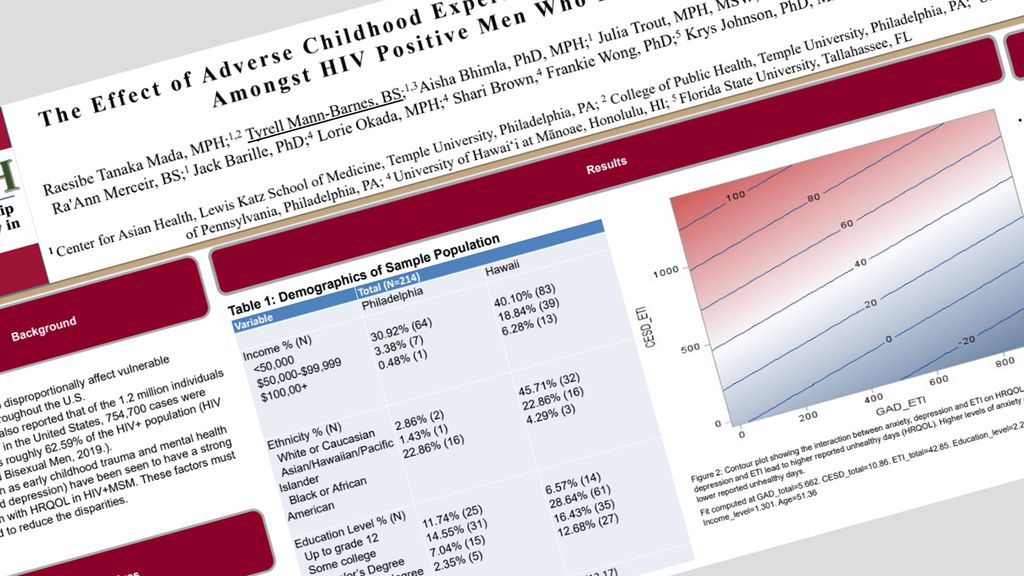
Anxiety and Depression Were Significant Moderators for the Association between Adverse Childhood Experiences and Quality of Life Among HIV Positive Men Who Have Sex with Men
| Name | Tyrell Mann-Barnes |
| Institution | Temple University |
| Research Field | Population Research |
| Role at Institution | Graduate Student |
| Presenter(s) | Tyrell Mann-Barnes |
